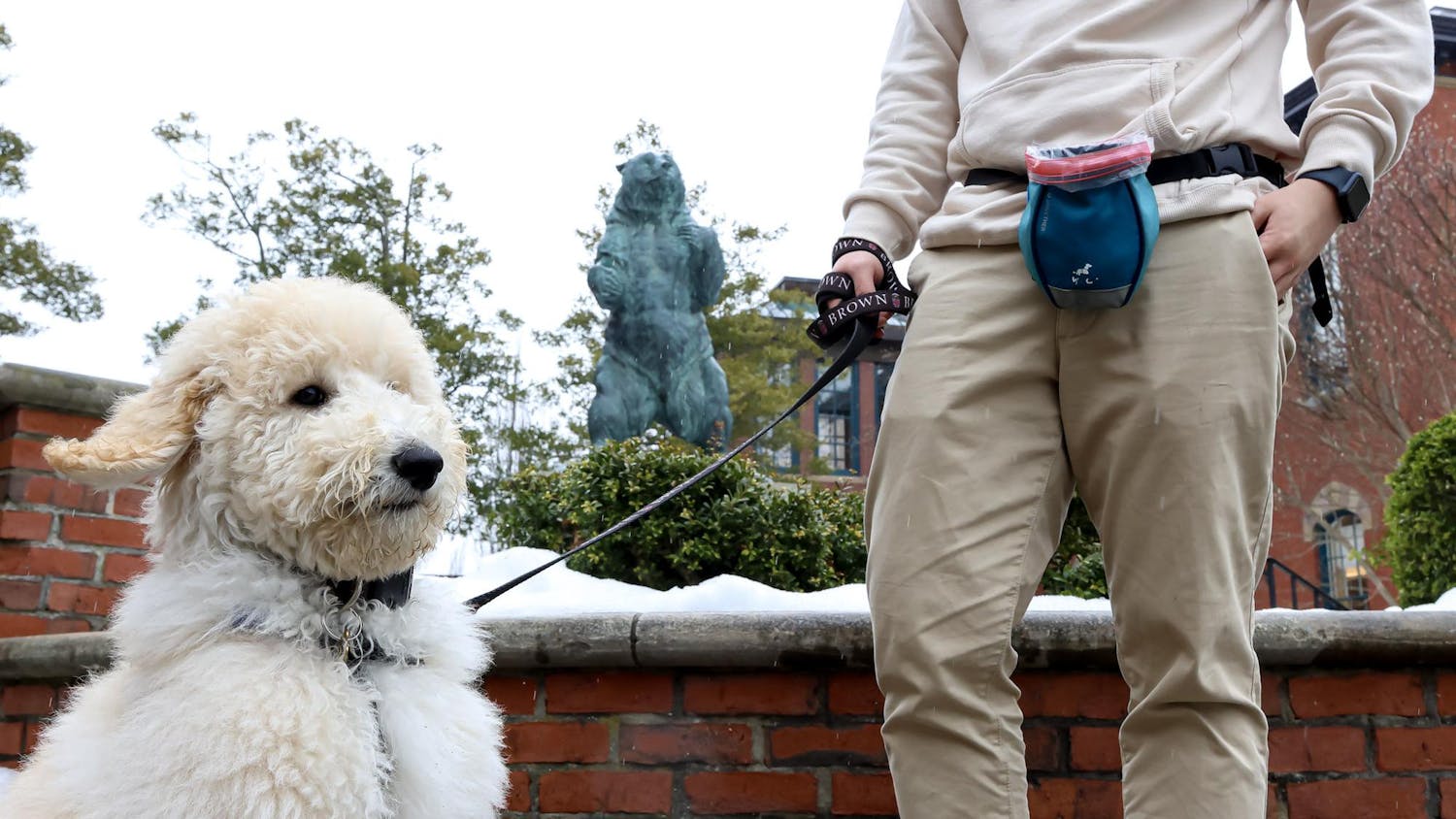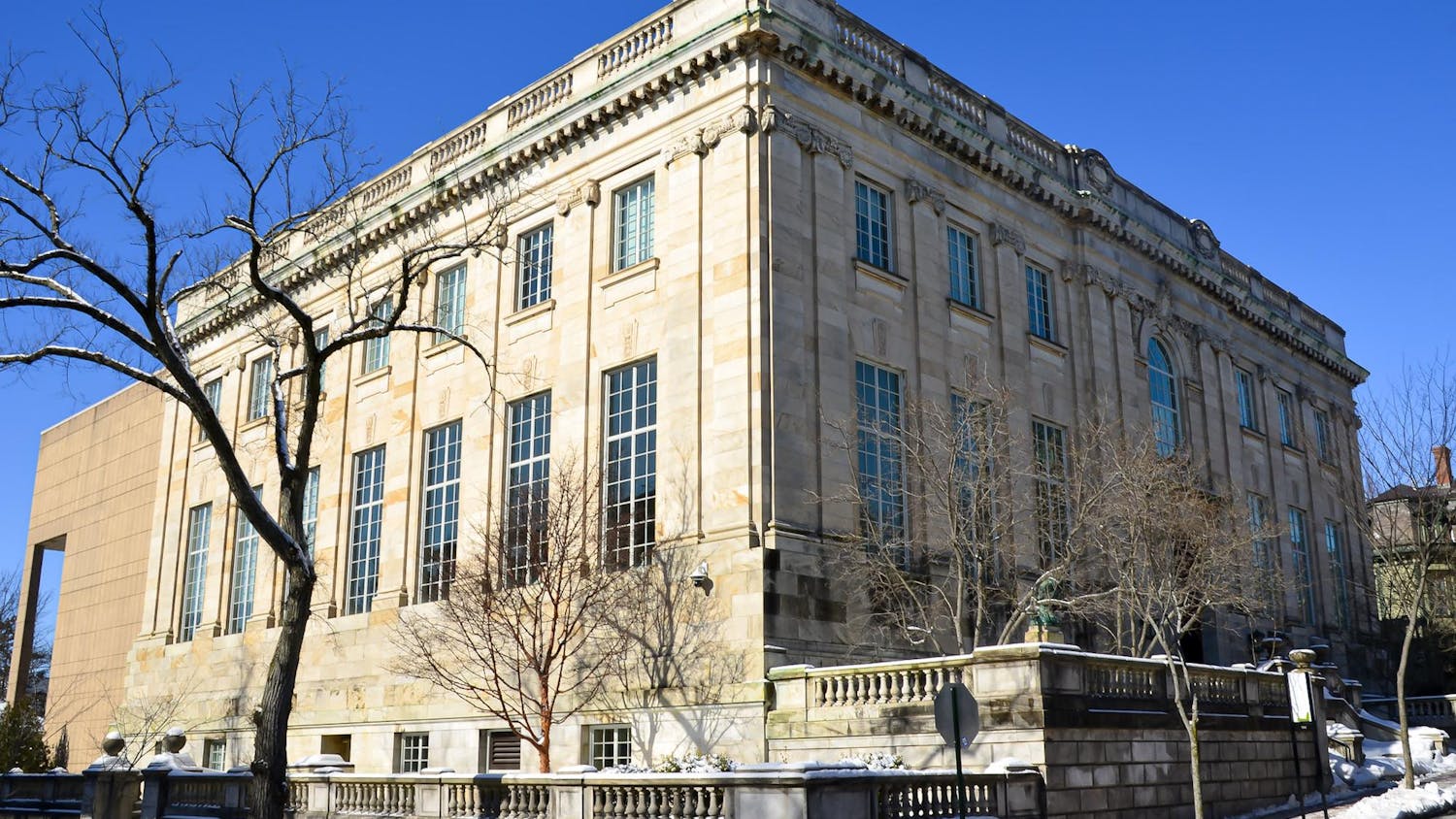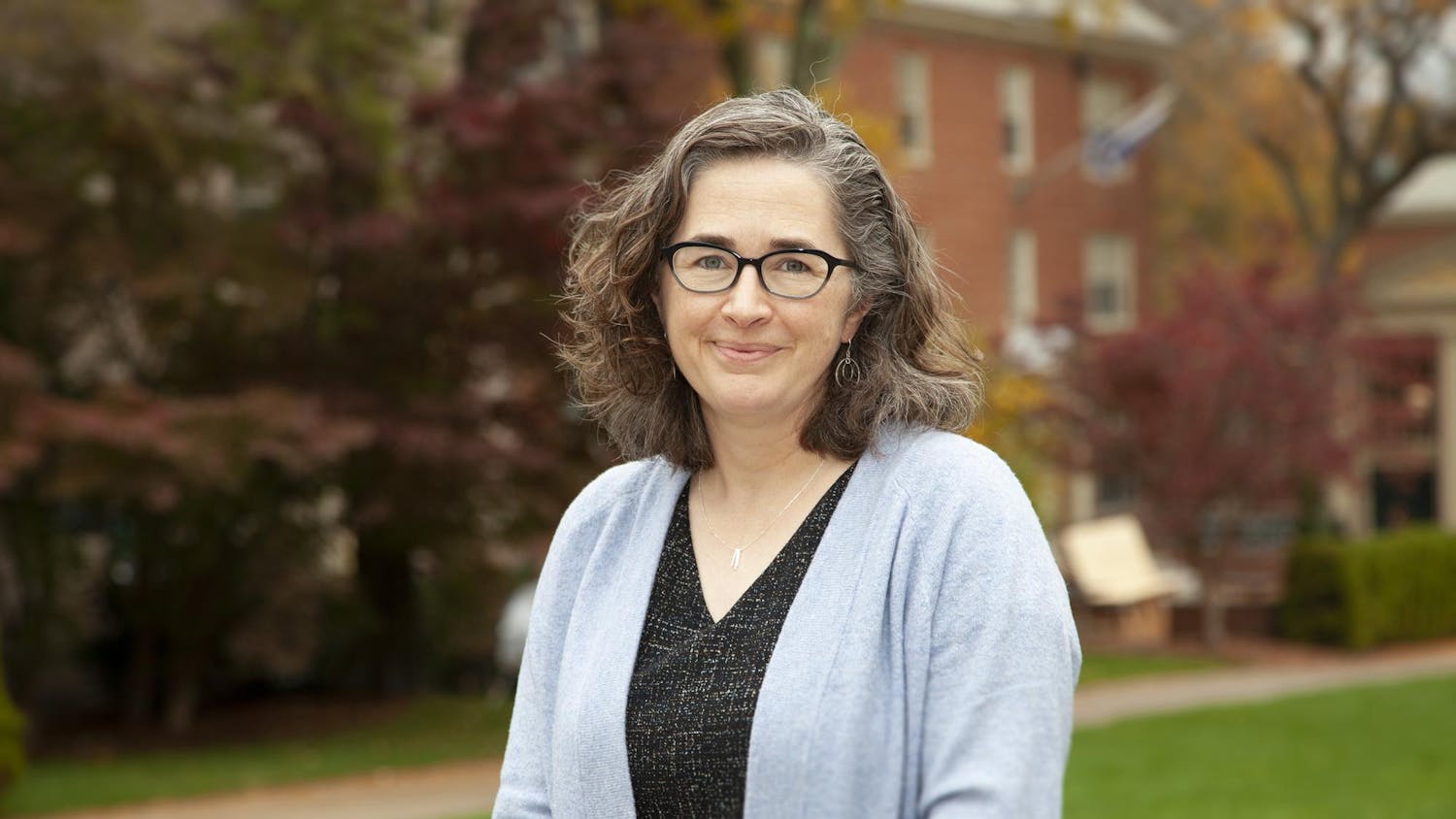Former president of Pakistan Pervez Musharraf said India poses an "existential threat" to Pakistan to a packed Salomon 101 Tuesday night. His wide-ranging speech touched on nuclear proliferation, the Talibanization of Afghanistan and the challenges of leadership.
The crowd of students and faculty who came to see the political leader speak overflowed into Sayles Hall, where a simulcast of the speech was screened.
Musharraf, who took office after a coup in 1999 and led Pakistan until he resigned in August 2008, spoke for about 45 minutes. A question-and-answer session moderated by Associate Professor of International Relations Nina Tannenwald followed.
Flanked by the Pakistani and American flags, Musharraf greeted the crowd — which included a reporter from Pakistan's 24-hour news channel, News One — with a military salute.
He then delved into an overview of Pakistan's recent history and its relations with bordering countries and with the West. He also discussed threats posed by the region's extremist groups.
The epicenter of terrorism — which Musharraf called one of the world's prime challenges — is located in Pakistan and its neighboring countries, he said. Regionwide extremism requires a systemic, durable and multifaceted solution, he added.
"Don't be stuck in the short-term solution," he said. "Go for the root."
Poverty and disparity drive extremism, he said, citing the alienation of Muslim youth in India and illiteracy in rural Afghanistan. "Pakistan is a victim of terrorism and extremism," he added.
These issues require a broader approach than military action can provide, the former general said. "Military will not provide peace alone," Musharraf said.
But Musharraf maintained that military force along the border with India remains crucial for Pakistan, which Musharraf said faces an "existential threat" from its neighbor.
Pakistan's current forces — and nuclear arsenal — on the border are purely defensive, he said. Musharraf acknowledged the countries' frayed relationship, adding that he has the "dubious distinction" of fighting two of the three wars between them.
Though the two countries came close to settling their disputes during his presidency, the relationship remains tense, he said.
"I am a man of war, but I am a man for peace," Musharraf said, adding that he understands that war "ravages."
"That's why I am for peace," he said.
In addition to instability, developmental problems abound in the region, said Musharraf, who drew laughter with his remarks about the jargon of economics.
"There is a tendency to complicate our economies," he said, adding that he often reacts to economists with the question, "Why are you confusing me?"
Reflecting on his time as president, Musharraf addressed the qualities a leader embodies and the ways students can integrate these qualities into their careers.
Musharraf said the primary role of a Third World political leader is "to ensure the security, progress and development of the state for the well-being of the people."
A leader can gain a following through fear, but it is better to be relatable to subordinates, he said, adding that "your people must love and respect you and never be scared of you."
The lesson which he has drawn from years in power during the conflict between India and Pakistan, he said, is that "a compromise for the bigger has all the positive connotations."
"Boldness to give," Musharraf said, is the most important quality of a leader. "An agreement implies give and take. It cannot be take and take."
Musharraf, whose speech ranged broadly, also drew laughter when he discussed the key components of good leadership near the end of his remarks. Glancing at his watch, Musharraf said, "I'll skip the part about justice."
As Tannenwald laid out the rules for the session — "If you feel the need to make a speech, please go afterward and blog later" — the screen in Sayles Hall focused in on Musharraf fanning himself with his folded notes, provoking laughter from students.
"I expect very frank questions and you should expect equally frank answers," Musharraf said.
Sriram Subramanian '10 asked Musharraf about the 1999 Kargil War in Kashmir, in which Musharraf commanded Pakistani forces. Musharraf acknowledged his role in that conflict but placed it in a wider context, listing India's offensives against Pakistan.
"I didn't expect to hear a complete admission of guilt," Subramanian said afterward. "But he is the one who spearheaded the campaign … which turned out to be a diplomatic embarrassment for Pakistan."
Sajjad Hasan '10, a Herald business staffer, asked Musharraf how he would advise an aspiring but politically unconnected politician on how to navigate Pakistan's political arena, which he said has been dominated by the Bhutto and Sharif families for decades.
"The environment is certainly tribal and feudal," Musharraf responded. "But the politics of Pakistan needs fresh blood."
After the lecture, Asad Hassan '13, a student from Pakistan, said Musharraf successfully covered "the background of the problems we face at the moment."
Still, Musharraf evaded a question about the Pakistani army's involvement with the Taliban, Hassan said.
Before Musharraf spoke, Gulfam Khan, a cameraman for Pakistan's News One, interviewed students waiting in line on the Main Green.
In addition to News One, Pakistan-based channels Geo and ARY will air the footage, Khan said.
"It's nice to see just the people here to listen to Musharraf," Gulfam said. "All the people lining up — he must be something."
"It's reassuring," Melissa Dzenis '11 said of the packed crowd, "that, in spite of all the chaos that is now in the international realm, there is an outpour of interest at Brown."
— With additional reporting by Sydney Ember




